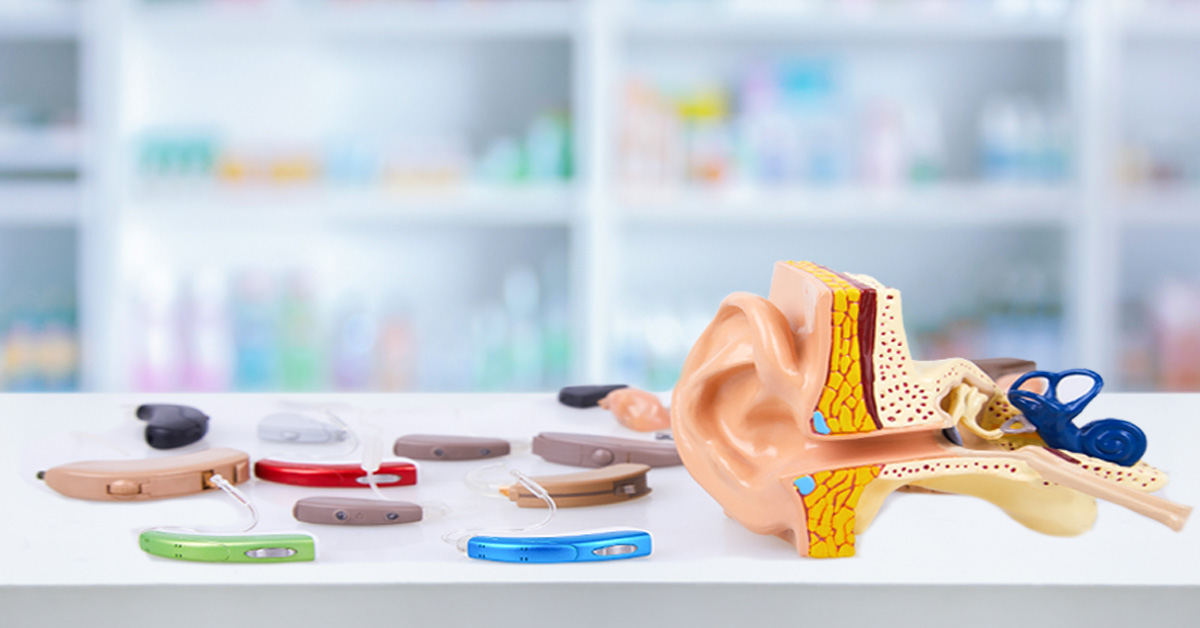With hearing aids available over the counter, more people are expected to consider buying them to address hearing deficiencies.
The U.S. Food & Drug Administration issued final regulations for the sale of over-the-counter hearing aids in August 2022. Now consumers can purchase them in stores and online, where prescription hearing aids are not available.
Such a purchase has pros and cons.
That’s why the audiology specialists at Hearing Center BayCare Clinic explain everything hearing aid buyers need to know before deciding and stress the importance of working with an audiologist for the best outcome.
Over-the-counter hearing aids frequently asked questions
About 30 million adults in the United States could benefit from hearing aid use, the FDA says.
“Some people will benefit from over-the-counter hearing aids. Others won’t,” says Heather Schwartz, AuD, an audiologist with BayCare Clinic. “Most people can’t determine the cause of their hearing deficiency. Is it caused by a serious medical issue or by something as simple as ear wax? They aren’t able to self-diagnose.”
Audiologists still vital
The availability of over-the-counter hearing aids is intended to encourage competition and ensure the sale of safe and effective over-the-counter hearing aids, the FDA says. Even so, don’t discount the expertise and specialization offered by an audiologist.
“Over-the-counter hearing devices might intrigue and entice many people seeking relief for their hearing issues,” Schwartz says. “But they’re generally best for those with mild to moderate hearing loss. An audiologist can help determine your level of hearing deficiency as well as which option – prescription or over-the-counter hearing aid – is best for you.”
Over-the-counter hearing aids will offer more cost-effective options. A pair of over-the-counter hearing aids could cost less than $1,000, the American Speech-Language-Hearing Association estimates.
However, cost shouldn’t be the main determining factor for hearing aid shoppers, audiologists caution.
“Often times, you get what you pay for,” says Schwartz. “That’s an ill-advised approach when it comes to hearing aids. Understand that the price you pay when you visit an audiologist also includes the professional services you receive – custom-designing your hearing aid, programming adjustments, fine-tuning the settings. An audiologist is trained to aid you with all these and more.”
Consult a hearing specialist
Over-the-counter hearing aids are best regarded as a “starter option” for adults with mild to moderate hearing loss, Schwartz says.
Navigating new hearing aid options
“Someone seeking treatment for hearing loss is best served by consulting with an audiologist who has the training, expertise and specialization to address a multitude of hearing issues and provide the best possible solution for those diagnosed issues,” Schwartz says.
“We support people looking to be their own best advocate for hearing and other health-related matters,” she says.
“We also will continue to remind people that seeking a hearing evaluation by a specialty-trained audiologist is the best avenue for receiving and applying the appropriate level of hearing health care.”
The audiologists at Hearing Center BayCare Clinic provide a full range of hearing tests and rehabilitation services for the diagnosis and treatment of hearing loss and balance problems in patients of all ages. They are highly trained on how to treat all degrees of hearing loss, including mild, moderate or severe age-related hearing loss or noise-induced hearing loss.
